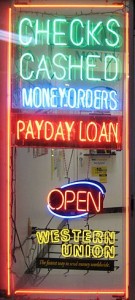
Some New Jersey landlords have been evicting tenants during COVID-19 against the New Jersey Eviction Moratorium put in place by Governor Murphy in March.
Unscrupulous landlords have been getting away with intimidating tenants and evicting them from their homes at a time when they have nowhere to turn.
Many New Jersey residents have lost employment or have had their hours reduced due to the COVID-19 pandemic. New Jersey’s governor, knowing people would be effected by a loss of employment and then may not be able to pay rent, acted to prevent these evictions by putting into place a New Jersey Eviction Moratorium.
Some heartless landlords try to evict a tenant for non-payment anyway taking advantage of the tenent’s lack of knowledge of the moratorium.
Judges Should Step In
A typical landlord tenant hearing has the homeowner on one side and a aggressive lawyer on the other side bullying the tenant into agreeing to move out to avoid having to pay back-rent while judges stand by doing nothing to help the tenant when the judge knows full well there is a moratorium in place.
This should not be allowed to happen during this COVID pandemic with mass unemployment due to no fault of the tenants.
I blame judges for not putting a foot down when they know all too well there is a eviction moratorium in place. I understand Judges refrain from offering legal advice to a litigant, especially one who is not represented by counsel, but to allow an agressive landlord to throw someone out of their home during this very uncertain time just should not be allowed to happen.
Judges should take a stand and dismiss cases while the moratorium is in place.
The NJ State Assembly Should Act
If judges aren’t going to take a stand, the NJ State Assembly should enact legislation preventing landlords from filing eviction with heavy fines for doing so to give it teeth.
Any landlord that files for eviction while the moratorium is in place should be fined the equivalent of one month rent for filing the case and the case should automatically be dismissed by the clerk of court.
Governor Murphy Enacts Anti-Eviction Moratorium
In March, when the pandemic hit New Jersey hard, Governor Murphy put into place several Executive Orders starting with Executive Order 103 on March 9, 2020 in which he declared a State of Emergency and Public Health Emergency effective immediately on that day. On March 19, 2020, Governor Murphy signed Executive Order 106 enacting a moratorium on removal of people form their homes due to tenant evictions or foreclosures.
Murphy Extends to Anti-Eviction Moratorium
Every month starting April 1, the governor has extended the State of Emergency and Public Health Emergency. Once again On July 2, 2020, Governor Murphy extended The State of Emergency and Public Health Emergency through Executive Order 162.
Each of these Executive Orders extends the anti-eviction moratorium for “two months following the end of the Public Health Emergency or State of Emergency established by Executive Order No. 103 (2020), whichever ends later….”
With the July 2 Order extending the State of Emergency for 30 days, this extends the moratorium through September 30, 2020.
I expect the Governor to extend the Order at least once again in August but we will wait and see how things go. He is under a lot of pressure from Trump to get things back to normal although, thankfully, the Governor has taken a conservative approach to things.
Should you find yourself in this situation, you now know to tell the judge there is a moratorium in place and there can be no eviction.
Good luck
 Payday loans are indeed the most despicable loans one can get and now online payday loan lending is one of the fastest growing areas of lending.
Payday loans are indeed the most despicable loans one can get and now online payday loan lending is one of the fastest growing areas of lending.




